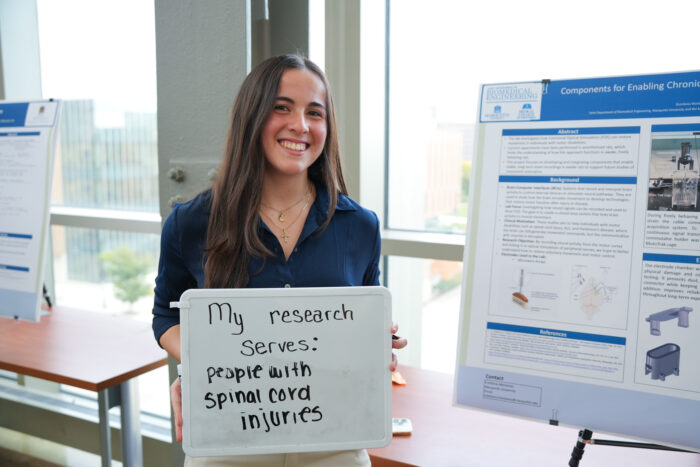
Dr. Nicholas Reiter, assistant professor of chemistry in the Klingler College of Arts and Sciences, has received nearly $1.68 million in R01 funding from the National Institutes of Health’s National Institute of General Medical Sciences to study the misregulation of RNA binding proteins that lead to degenerative disorders and cancer.
His project, “Structural transitions and RNA-mediated mechanisms of LSD1,” will be an integrative structural and cell biology study, which will assist in the development of RNA-based therapeutics for targeted cancers.
“This project is centered on the hypothesis that RNA structure and RNA-chromatin associated protein interactions play crucial roles in maintaining genome stability,” Reiter said. “As big data approaches begin to identify RNA-protein associations and their links to cancer, there remain key gaps in our biochemical knowledge regarding epigenetic-based RNA binding proteins. We hypothesize that higher-order RNA topologies function with cancer-associated proteins to alter gene expression at the ends of our chromosomes.”
Reiter and his co-investigator, Dr. Huaiying Zhang, assistant professor of biological sciences at Carnegie Mellon University, will look specifically at telomeres, which are the specific DNA-protein structures found at the ends of each chromosome. Telomeres are tightly regulated to maintain chromosomal stability, and misregulation of RNA-protein interactions at telomeres is known to contribute to certain diseases.
Reiter discovered and defined an RNA binding site on the lysine-specific demethylase 1 (LSD1), a chromatin-associated protein that plays a key role in cellular growth and development, and this result served as the basis of his first R01 grant. Now, in his second R01 award, he has paired up with Zhang, who recently discovered that telomeres can cluster in cancer cells through a process called RNA-mediated phase separation. They will use combined biochemical and cell biology approaches to demonstrate how specific nuclei acid structures engage with LSD1. In addition, they will examine how these RNA-protein interactions contribute to the observed clustering properties of telomeres in cancer cells.
“I am so pleased that Dr. Reiter has received a second R01 award to continue his research that can improve the effectiveness of therapeutics used to treat degenerative diseases and some cancers,” said Dr. Heidi Bostic, dean of the Klingler College of Arts and Sciences. “This grant gives him a great opportunity to collaborate with another leader in his field and combine their discoveries to work towards a common goal. Dr. Reiter’s innovative and much-needed research exemplifies the impact of the Klingler College of Arts and Sciences in the world.”
The NIH’s Research Project Grant (R01) is the original and historically oldest grant mechanism used by the NIH. The R01 provides support for health-related research and development based on the mission of the NIH. R01s can be investigator-initiated or can be solicited.
The National Institute of General Medical Sciences supports basic research that increases understanding of biological processes and lays the foundation for advances in disease diagnosis, treatment and prevention.


